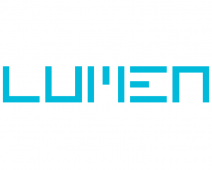Criteo Strategy Further Heralds The Rise Of The Data Driven Bidder
by on 6th May 2014 in News
Criteo intends to increase investment in its its bidding technology as it aims to reduce its reliance on display advertising, as well as improving its cross-platform ad serving portfolio, according to company CEO Jean Baptiste Rudelle who earlier today announced its “record quarter”.
The company today announced revenues of €152.5m for the first quarter of 2014 – representing a 68.4% annual growth – based on boosted customer numbers (up 46% year-on-year), as well as existing clients spending more with the company generating the growth.
Rudelle described the quarter as a ‘record quarter of profitable growth, while exceeding the high end of our expectations’, adding that key to its success was its ability to forge client direct relationships (80%)of its total business.
Mobile now accounts for 15% of Criteo’s revenues, this is up fro 10% in December, and reflects the roll-out of the company’s in-app and mobile web display services in the previous two quarters.
Rudelle added: ‘Criteo now has a complete mobile advertising solution compatible with all mobile platforms and browsers… and now generating over €1bn in post-click mobile sales for clients [given its current run rate].’
He also noted that most of the company’s mobile traffic is currently on mobile web, as opposed to in-app, as many of its partners and advertisers don’t have a mobile app yet. Although, he said Criteo would invest further as this situation changes.
The previous two quarters were also marked by a number of acquisitions from Criteo, with the company’s acquisitions aiming to help it expand its portfolio of services, namely with the improvement of its bidding technology, as well as moving into email.
Both Rudelle, and Benoit Fouillant, Criteo CFO, highlighted the importance of last month’s purchase of AdQuantic, a bidding technology company, to help bolsters its engineering talent, and February’s purchase of Tedemis, a leading provider of real-time personalised email marketing, and how they would play a role in its ongoing strategy.
Fielding questions from financial analysts, both pledged further investment in R&D and adding to its customer base, and it hopes to move beyond display. Rudelle said: ‘Clients have been pushing us to move across to other channels’. He later added: ‘“Email is a huge market… Clicks and conversions on email are very, very high.’
Fouillant went on to explain how the purchase of Adcquantic was aimed to to help boost its bidding technology – although because of ongoing investment in the platform, he does not expect this to contribute any amount of significant amount of revenue – as well as its ‘engine improvement’, as it aimed to move beyond display.
He further went on to add that Criteo also intends to roll out a new email product leveraging existing sales channels in the comping year
Criteo also aims to reduce its reliance on its existing customer base by adding further customers in the ‘mid market sector’, according to Roudelle. At present such companies account of approximately 20% of its business, but the company aims to increase this significantly in the coming year, and will hire a number of new sales staff to meet this aim.
Another endorsement of the data-driven bidder
Criteo’s aim to boost its bidding technologies reflects the need for ad tech companies to pivot their offering in the much anticipated budget-squeeze at agency trading desk level, what will be key to the success of Criteo’s strategy is its ability to pack its bidder full of proprietary data segments.
Also, key to its success will be its ability to win-over attention from the likes of Tesco-backed Dunhumby, which last month bought Sociomantic, one of the leading independent players in the retargeting market, has built its own bidder technology and is integrated with most supply sources globally.
This also follows the realignment of Yahoo’s ad stack, and the more recent launch of AOL’s consolidated stack AOL One, and with Twitter expected to launch its own bidder by the close of the year, the competition for third-party ad tech vendors to stay on media plans is intense.
Adquantic’s website claims its bid management system uses “robust algorithms and statistical analysis” clients to keep full control of their search campaigns.
It goes on to read: “The system will use historical data to calculate the optimal bid for each keyword. Changes will only be made when sufficient data is available. The bids are changed directly in AdWords or Yahoo! Bing, where all changes are also logged. This provides full visibility on the bid management activity and also allows for roll-back.”
Ad TechDataDisplayMartechProgrammaticTargetingTrading







Follow ExchangeWire